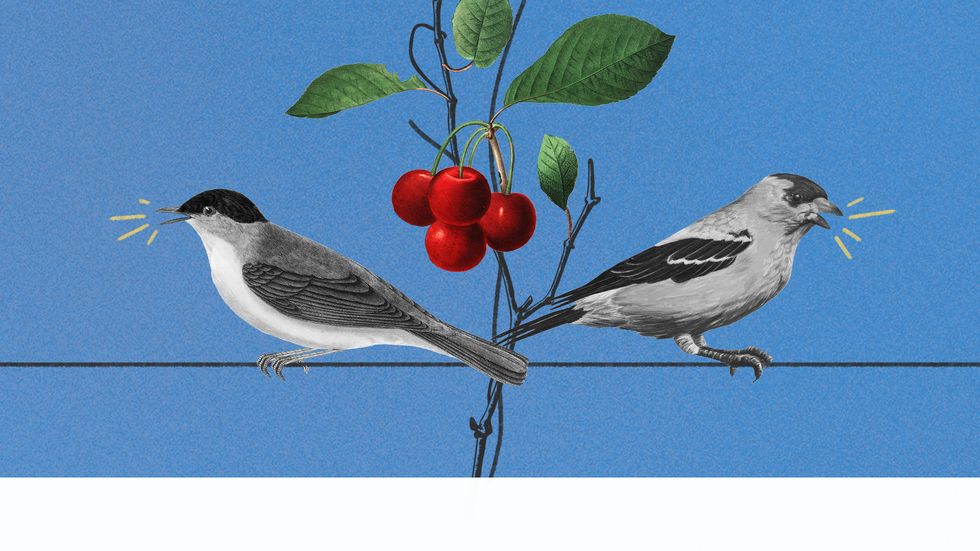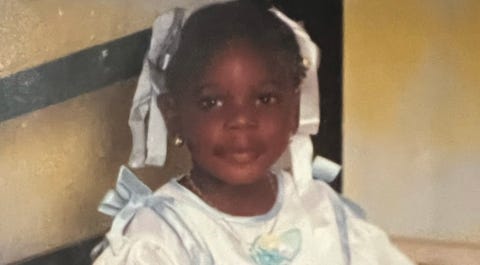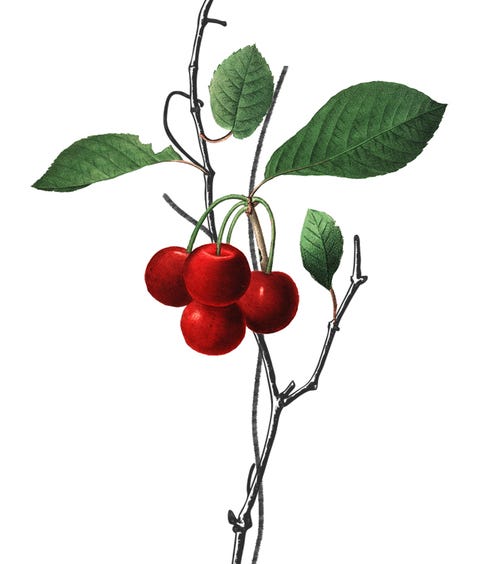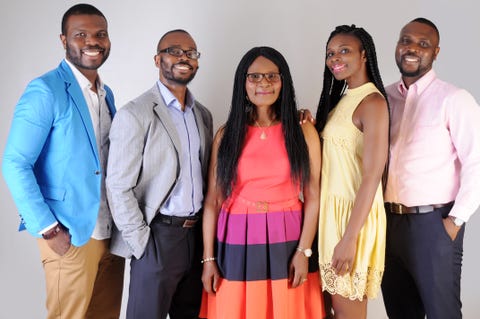‘Do You Speak African?’ Being a Black Immigrant In Black America
I was first christened “African booty scratcher” in fourth grade—my second year in America. It sounded ridiculous, but it pricked when my classmates would belly-laugh at my expense. This is also my earliest memory of Black America.
It wasn’t white America that first outed my otherness. It was the Black American boy in that overcrowded South Bronx public school classroom, with chipped walls and worn books, that called attention to my foreign status at the mention of my traditional first name when the teacher took attendance: Abiemwense. A name I would later invert in high school with my second first name (our tribe’s tradition) when I grew tired of being mocked. A name that sounded bizarre to him, that when coupled with my thick, unbound hair and strange pronunciations, suggested I was the other within his othered-ness.
In those early days, settling into the South Bronx and encountering Black Americans calling me out because of my accent or mismatched Caldor-bought clothes or the Payless Pro Wings sneakers, I’d cry to Mom: I don’t belong. She would always tell me not to mind them. She promised this country would make us better. To focus on working harder.
Mom had sacrificed a life full of acres and cars and nannies in Benin City, Nigeria to ensure a path in America for me. To ensure my brothers and I would not be impacted by the deterioration of a flawed system with year-round school strikes, dwindling human (mostly women’s) rights, poor infrastructure, high unemployment rates, government scandals, and nepotism. Studious as she was, my forever compass, she entered this country as one of the nurses who benefited from the Immigration Act of 1990—a federal law whose previous iterations had excluded people with her skin color but now sought highly skilled nurses from countries like Nigeria and the Philippines. My mother was so brilliant, America wanted her. That was something.
Some Black Americans believe that African or Caribbean immigrants come here with so much wealth that we gain an advantage over Black Americans. That wasn’t Mom. At one point, my single mother worked three jobs to ensure she was crafting the path to her American dream for us. Yet she was always present on our road to achievement. She didn’t praise anything but distinction. If we received an A-, she would look at the exam or assignment and tell us to correct the ones we got wrong. Even as we adjusted to our new life, even as she struggled to feed, clothe, and house us and those she left back home in Nigeria, she embodied the excellence she so desperately wanted for us.
Our story is one with common threads shared by many African and Caribbean immigrant families. It makes the chasm between our lived experience and the narrative some Black Americans attribute to families like mine piercing. When this perennial, charged them vs. us narrative recently cropped up again around the internet, I thought back to my early interactions with Black Americans, who ridiculed me with cruel remarks like, “Yousa’ monkey! A gorilla! Do you guys jump from tree to tree in Africa? Why don’t you go back to your hut? Do you speak African?”
In sixth grade, I experienced the most definitive and violent example of the them vs. us conflict. A Black American girl, who would tell me often to “Go back to Africa,” walked up to me during recess as I stood by the barricades that blocked cars as students played on the streets. She punched me dead smack in my face. Unprovoked. Just standing there minding my Nigerian business. I began to cry as I had done many times before. But this day, a wave of unusual anger spun me. I had had it with her, with them and their jeering. I decided to fight back. I lunged toward her, and both of us crashed onto the heated concrete. In the wild frenzy, I hit her with uncontrollable, flailing hands. It felt good. Like I had regained my confidence in me—in reclaiming my Nigerian-ness within their Blackness.
At that point, I had started to develop what I now know was an unconscious anti-Blackness mentality. An unconscious anti-Blackness rooted in how we Black immigrants come to this country, wide-eyed, gazing upon its endless feast of educational and economic opportunities, joining those with whom we share the same skin color but share no bond. But I was still searching for a sense of home, of community, in America, so it seemed simpler to adopt Blackness.
Between middle and high school, I went through my blue-haired-cornrows-Lil’ Mo-Superwoman phase. My Pepe Jeans and Sergio Valentes and Baby Phat velour tracksuits phase. My clip-on nails and pressed-up-do and Moesha-braids-with-burnt-ends phase. And through each passing phase, I still knew I was an other. Though our differences were stark, White, Asian, and Hispanic Americans never ridiculed or made me feel more like an outsider. To them, I was simply Black. But forming an identity within Blackness was jarring and complicated.
During my high school and college years, full of application forms for this or that program, it dawned on me for the first time that Black immigrants and Black Americans shared the same racial checkbox. I became African American, willingly or not. This is where some members of the American Descendants of Slavery (ADOS) community believe Black immigrants “take” academic and professional opportunities from Black Americans. But if that single checkbox classifies us all with this skin, what then—despite America’s history of prejudice against all racially Black people—separates us at those points of entry?
The term American Descendants of Slavery was coined in 2016 by Antonio Moore and Yvette Carnell to establish a separate categorization for Black Americans, an effort to add nuance to that one-size-fits-all checkbox. The political movement calls for the federal government to give Black Americans their own racial category on the census and applications for colleges, jobs, etc., to differentiate between them and us. In doing so, they want those institutions to prioritize Black Americans to benefit from national policies like affirmative action—laws initially designed to help descendants of American slavery. (Those policies are now under attack.)
A flood of migration fueled the ADOS movement’s fight. From the mid-90s—when my family first arrived in America—to 2019, the Black immigrant population more than tripled, going from 1.4 to 4.6 million, with Nigerians making up a quarter of that increase. African immigrants are more likely than Black Americans to have a college degree. And when compared to the general U.S. population, Nigerians, in particular, are more likely to have bachelor’s or advanced degrees.
These disparities are real, and in pushing to address them, ADOS supporters believe Black immigrants shouldn’t fall under the same “African American” grouping. As the argument goes, Black immigrants who choose America are free from the legacy of being enslaved in this country. It’s an assertion I’ve come to understand and respect. Given our divergent histories, my family and I shouldn’t benefit from any form of restitution meant for “African Americans.”
Identity is often fraught, but my identity will always be my ethnicity, not the American definition of race: I am Nigerian first and always.
In Nigeria, our tribes—Igbo, Yoruba, Hausa, Édo, and hundreds more—coupled with our belief systems, make up our identity. Those markers of ethnicity and religion are not visible to the naked eye. And because we all visibly look the same, save for colorism, the idea of race has no bearing in our homelands. To be us—this skin that’s so problematic in America—is synonymous with excellence. We come from a history full of it—the stories our ancestors passed down to us were of literal kings and queens, colonization be damned. Stories of flourishing in gold and oil and gemstones are all we ever knew. Academically and professionally, the grind for achievement was instilled in us because everyone strives for the same caliber of accomplishment. It’s passed down. It’s the norm.
In the legal sense of belonging, my birthright citizenship will always belong to Nigeria, and my naturalized citizenship is with America. But in a social sense, my identity is never singular. In one country, my identity is my ethnicity, my tribe. In the other, race—those physical characteristics of skin color, hair, facial features—is prominent; my tribe holds no value.
As I’ve tried to grab hold of my Édo-ness in America while forming ties to American Blackness, I am often reminded, still, I am from Africa. This resistance made me delve further into why there remains an unyielding need to segregate them from us.
Starting in my college years, I deliberately began studying the breadth of Black American history to better grasp their struggles. That’s when I also met my best friend, a Black American, and we began discussing this tension. She became a safe place to ask questions about how they perceived us. Even asking silly questions like, “What does ‘yo’ really mean?” Because I had another phase where I punctuated almost everything with ‘yo’ without really understanding its many variations. I never even attempted to adopt the N-word as I delved into Black vernacular; there are layers to its complexities I dared not cross. (Take “That’s my n*gga”—it has this affectionate subtlety, this history, that I have no claim to.)
The juvenile ridicules of “African booty scratcher” and huts and “do you speak African” no longer mattered the more I realized they never knew my history the way I could know theirs. The history books in America all but eliminate the depths of who we—Africans and Caribbeans—are: That’s why many swirl in misconceptions that Africa is a singular place, not a continent with 54 countries. They could never know the extent and effect of colonization. Or the need to flee a country for better, sustainable upward mobility. But I could commiserate with their history without it being my own.
The more I’ve understood the vastness of African American history and the need to cultivate an identity steeped in cultural and ethnic integrity—far from the way it was taught in Social Studies or AP History—it became clear we both have direct ties to Africa. We both value cultural identity. Yet, the ongoing battle of the them vs. us discord centers on the need to differentiate how we each came from Africa.
To the ADOS community, to be a proper African American means to claim the African heritage through their ancestors from American slavery and the Americanness gained through Emancipation. Tracing their heritage to 17th century America when the primary exports from sub-Saharan Africa to American colonies were people, this African American history riddled with lynching, castration, servitude, the short-lived joy of Emancipation, the strife of Jim Crow and the Ku Klux Klan, the urbanization of Blacks that led to extreme concentrations of poverty, drugs, racial violence, and incarceration, to rallying freedom demonstrations in the Black Power and Civil Rights movements, to the present-day struggle against subjugation and an institutionalized generation, is their story, not mine.
Still, all with this skin are subjected to the same racial inequities. Because when an officer pulls me over, I’m not asked, “Are you a Black American or Nigerian?” We’re both stereotyped the same.
That reality cemented for me when my eldest brother was unjustly stopped, frisked, and deported years ago. I fully recognized just how indistinguishable we were from Black Americans.
All these years later, far from “African booty scratcher” taunts, I have come to value the similarities in our cultures. The vibrancy in music, with resounding influences from the likes of Fela Kuti and Bob Marley. The need to let our bodies loose in liberation at block parties and family gatherings. The need to express our identity through our hairstyles, clothes, and art. It’s a thing to behold, to be proud of. There’s a connection there. So this continued infighting between Black Americans and Black immigrants must be reconsidered with an eye toward who has the most to gain. In this time when critical thinking and African American history are being combated and very nearly eradicated, who really benefits from one of the most subjugated groups of people nurturing wider divisions between them because of our composite histories?
Black immigrants will never bear the burden of American slavery and its intergenerational trauma or experience the institutionalized school-to-prison pipeline in the way many Black Americans have. Even still: Black immigrants are not unfamiliar with such deep-seated biases. In our homelands, it takes shape in tribalism, colorism, and class divides, all similar inclinations found within Black—and even white—America. A way to distinguish one from the other. A way to say, ‘Here is my perceived power over you, because we collectively fall short in this fundamentally racist system.’ My brother’s imprisonment and deportation unraveled that reality for me.
But I cannot shake the fact that our ancestral distinction would always be the thing that divides us in a country that already abandons us.






